Diplomacy & Politics Archive
Free Newsletter
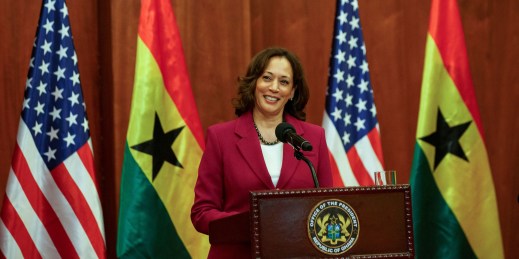
U.S. Vice President Kamala Harris is on a nine-day tour of Africa that includes stops in Ghana, Tanzania, and Zambia. But while Harris has strenuously avoided making references to Washington’s rivals, the growing competition for influence in Africa between the U.S. and China nonetheless loomed large during Harris’ tour.
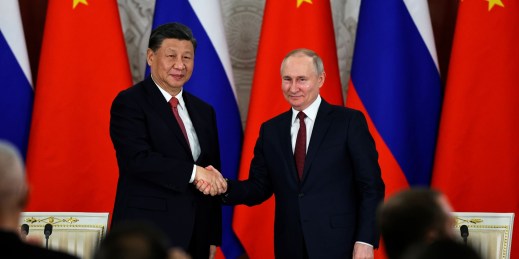
Many observers have downplayed Chinese President Xi Jinping’s trip to Moscow last week to meet with his Russian counterpart, Vladimir Putin, saying it did little for Moscow. Others argued that it even sealed Russia’s fate as a vassal of China, whose domination of their partnership is now “complete.” But this might be short-sighted.
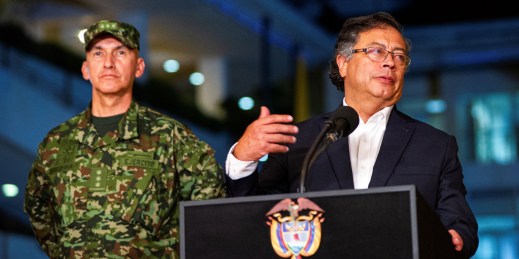
As part of his “Total Peace” plan, President Gustavo Petro has asked Colombia’s armed groups clamp down on lethal violence. While some have complied, others have traded conspicuous violence for other types of coercion, leading many to fear they are taking advantage of the government’s outreach to quietly dig in their heels.
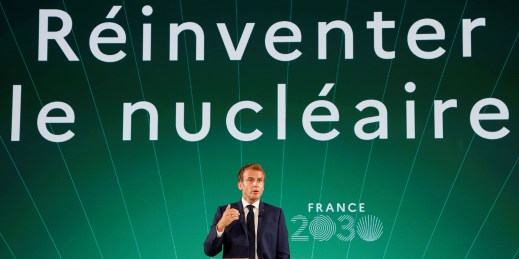
The European Union’s member states are locked in some heated debates this week about Europe’s energy future. The discussions involve about 10 different pieces of legislation, but they center on one fundamental question: Should the EU be technologically neutral about how it meets its climate targets?
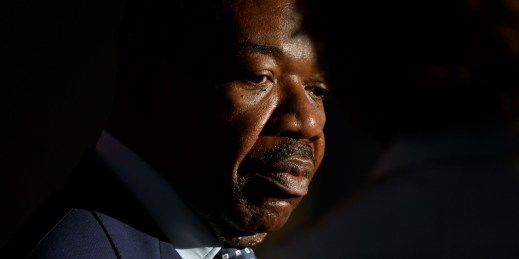
Ahead of Gabon’s general elections later this year, President Ali Bongo has engaged in a series of carrot-and-stick maneuvers designed to smooth the way for him to maintain power. But in many ways, Gabon’s electoral democracy is a thin veneer for a kinship-based political order at the center of which sits the Bongo family.
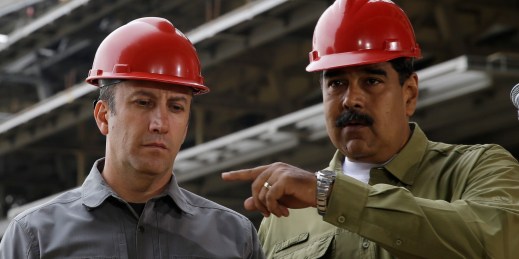
Tareck El Aissami has resigned as Venezuela’s oil minister after a wave of arrests for alleged corruption at the state-owned oil company. It’s unclear whether the arrests signal an internal power struggle within the regime. But El Aissami, an influential confidant of Nicolas Maduro, likely is an important piece of the puzzle.
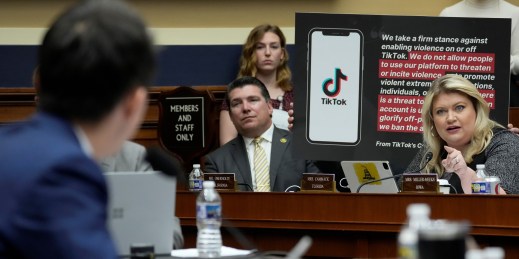
Last week’s congressional hearing on the alleged security risk posed by TikTok put into stark contrast the gap between the app’s fans and critics. The push in Washington to ban the social media app comes against the backdrop of increasing U.S.-China tensions over technology and the economic and political influence it generates.
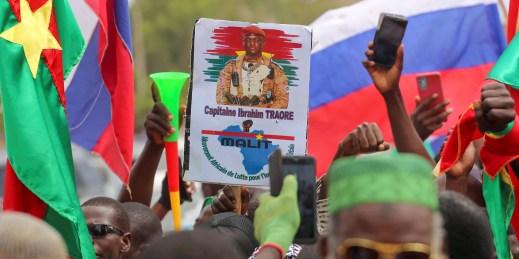
The European Union and U.S. often fixate on democratic elections as the basic foundation of political legitimacy. But in West African states such as Mali and Guinea, elections have led to contested outcomes or enabled authoritarian power grabs, profoundly unsettling the hopes of many in and outside the region for a more stable future.
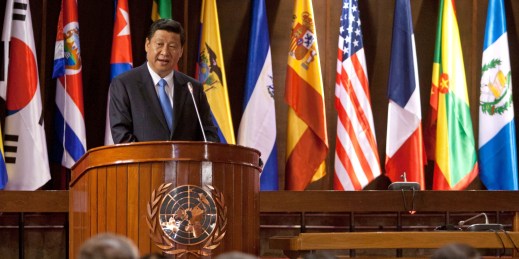
In recent years, Beijing’s strong foothold in Latin America has caused anxiety in Washington, particularly amid the recent resurgence of left-wing governments in South America. But although Beijing has made considerable gains in the region at Washington’s expense, claims about China’s influence there might be overstated.
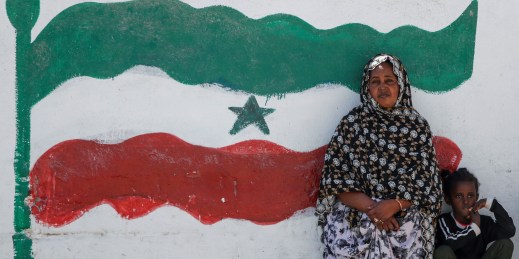
Over the course of the past decade, Somaliland’s fortunes have drastically and irrevocably changed, raising hopes that engagement with foreign powers will translate into formal recognition. Unfortunately, recent violence between security forces and a local clan in the southeast show that things are never so straightforward.
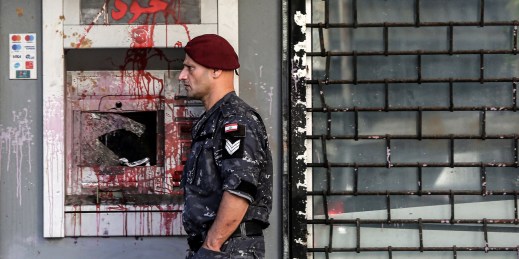
Last Thursday, the International Monetary Fund released a statement describing Lebanon’s situation as “very dangerous,” due to the government’s failure to implement reforms. For ordinary Lebanese, that means navigating a landscape that combines the volitivity of a crashing stock market with the horrors of a dystopian movie.
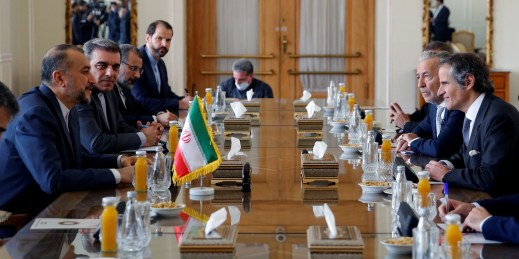
Earlier this month, Iran and the International Atomic Energy Agency reached an agreement to reestablish certain transparency measures at select nuclear sites. Amid growing concern over Iran’s expanding nuclear activities, the deal is a positive step that bodes well for international efforts to contain Iran’s nuclear program.
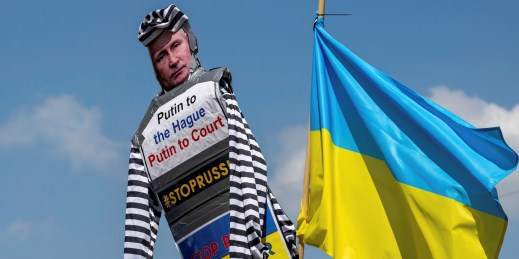
Last week, the ICC issued an arrest warrant for Vladimir Putin for the deportation of Ukrainian children to Russia since the start of the invasion of Ukraine. The ICC’s decision to focus on the deportation of children, rather than other horrific crimes allegedly committed by Russian forces, is not as surprising as it might seem.
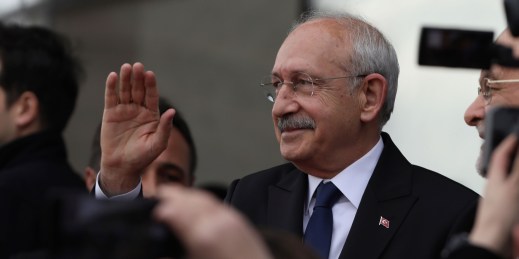
As the shock, horror and devastation of the earthquakes that hit Turkey in February slowly begin to fade, political candidates have begun jostling for position ahead of crucial elections scheduled for May 14. The vote represents the Turkish opposition’s best chance to unseat President Recep Tayyip Erdogan after 20 years in power.
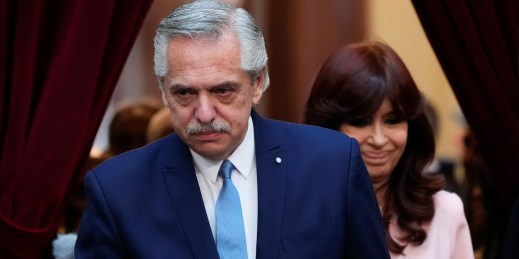
Argentine President Alberto Fernandez’s recent address to the nation, in which he was expected to roll out his proposed policies to address the country’s economic crisis ahead of elections later this year, did not go as planned. The speech was poorly received and represented a missed opportunity to reshape the political narrative.
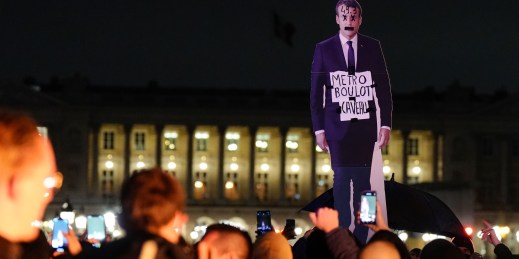
After his reelection in April 2022, French President Emmanuel Macron promised to pursue consensus to advance his agenda. Less than a year later, however, millions of protesters have paralyzed the country, after Macron forced through a pension reform over widespread popular opposition and a lack of votes in parliament.
